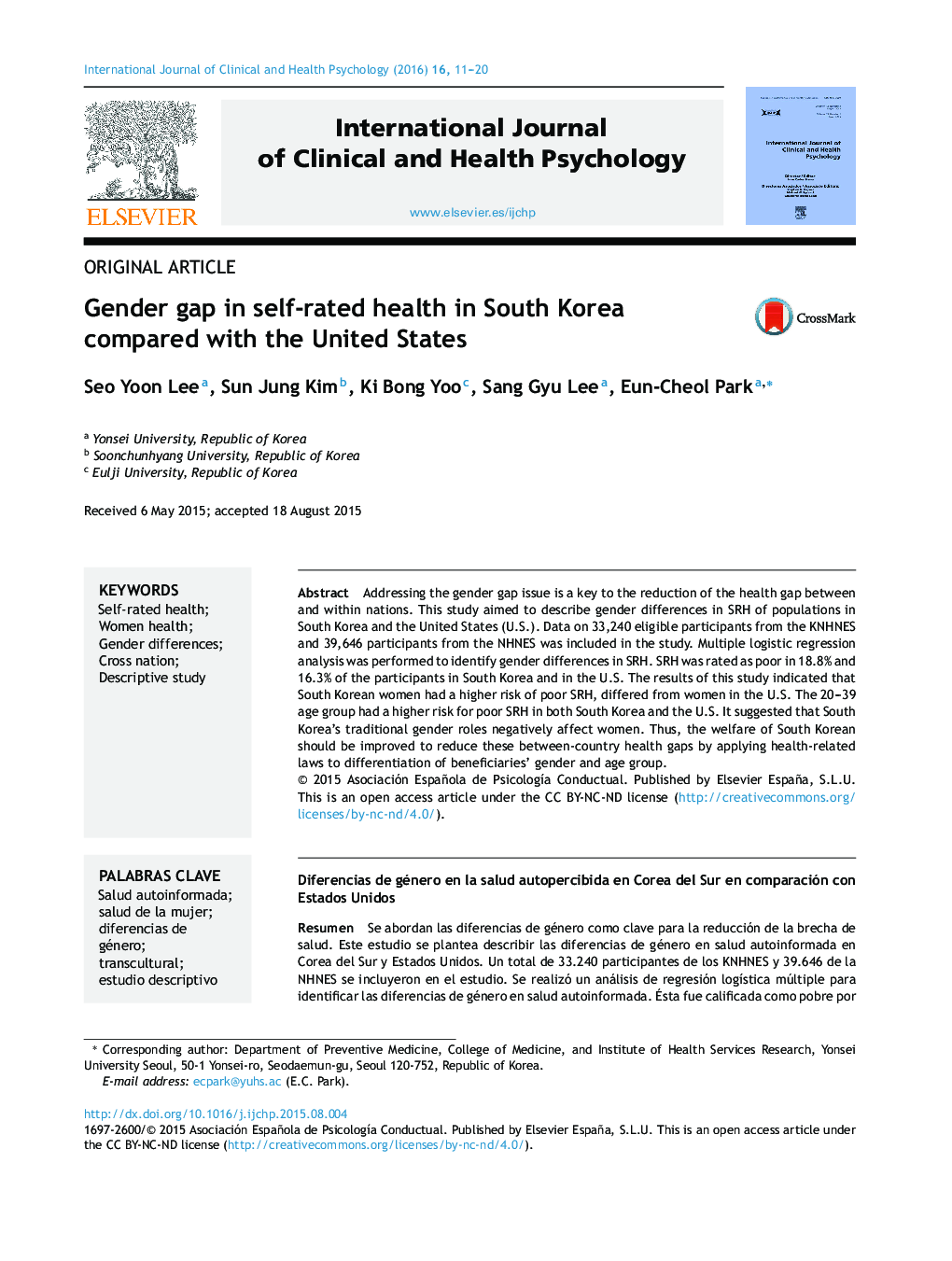| کد مقاله | کد نشریه | سال انتشار | مقاله انگلیسی | نسخه تمام متن |
|---|---|---|---|---|
| 879949 | 1471343 | 2016 | 10 صفحه PDF | دانلود رایگان |
Addressing the gender gap issue is a key to the reduction of the health gap between and within nations. This study aimed to describe gender differences in SRH of populations in South Korea and the United States (U.S.). Data on 33,240 eligible participants from the KNHNES and 39,646 participants from the NHNES was included in the study. Multiple logistic regression analysis was performed to identify gender differences in SRH. SRH was rated as poor in 18.8% and 16.3% of the participants in South Korea and in the U.S. The results of this study indicated that South Korean women had a higher risk of poor SRH, differed from women in the U.S. The 20–39 age group had a higher risk for poor SRH in both South Korea and the U.S. It suggested that South Korea's traditional gender roles negatively affect women. Thus, the welfare of South Korean should be improved to reduce these between-country health gaps by applying health-related laws to differentiation of beneficiaries’ gender and age group.
ResumenSe abordan las diferencias de género como clave para la reducción de la brecha de salud. Este estudio se plantea describir las diferencias de género en salud autoinformada en Corea del Sur y Estados Unidos. Un total de 33.240 participantes de los KNHNES y 39.646 de la NHNES se incluyeron en el estudio. Se realizó un análisis de regresión logística múltiple para identificar las diferencias de género en salud autoinformada. Ésta fue calificada como pobre por el 18,8% y 16,3% de los participantes en Corea del Sur y en los Estados Unidos, respectivamente. Los resultados indicaron que las mujeres de Corea del Sur tienen mayor riesgo de mala salud autoinformada, difiriendo de las mujeres estadounidenses. El grupo de edad 20-39 años tuvo un mayor riesgo de mala salud autoinformada, tanto en Corea del Sur como en Estados Unidos. Se sugiere que los roles de género tradicionales de Corea del Sur afectan negativamente a las mujeres. Por lo tanto, el bienestar de Corea del Sur debe ser mejorado para reducir estas brechas de salud entre países mediante la aplicación de leyes que tengan en cuenta el género y el grupo de edad de los beneficiarios.
Journal: International Journal of Clinical and Health Psychology - Volume 16, Issue 1, January–April 2016, Pages 11–20
